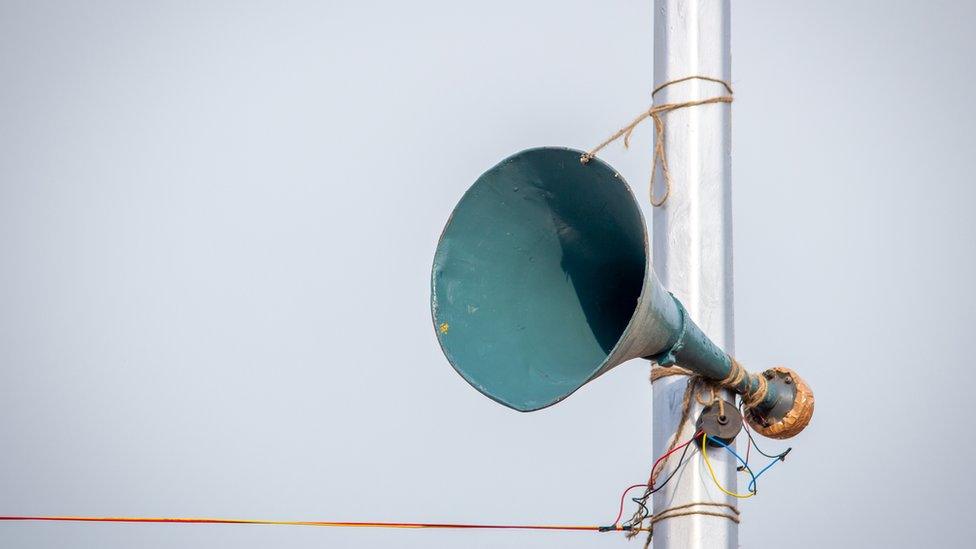Jahangirpuri: How religious violence razed homes and dreams
- Published
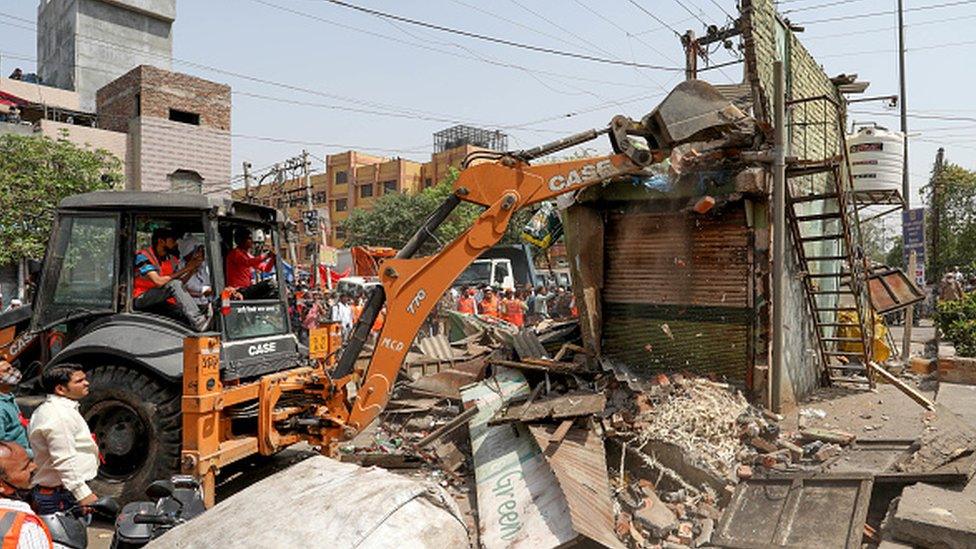
The demolition took place days after the area witnessed communal clashes
Delhi's Jahangirpuri remains tense days after communal violence and the demolition of houses and shops.
Violence broke out in the area when a Hindu religious procession marched past a mosque on Saturday. Hindus and Muslims blame each other for instigating clashes that broke out.
Around nine people - including seven police personnel - were injured in the violence.
This was followed by an "anti-encroachment drive" in the area on Wednesday. The local civic body, which is run by India's governing Hindu nationalist BJP party, said the drive was launched to clear illegal constructions in the area.
But Muslims say their properties were disproportionately targeted and they also questioned the timing of the drive, which continued for an hour after the Supreme Court gave an interim order to stop it.
Another order from the top court on Thursday directed all sides to maintain the "status quo" in the area.
The incident in Delhi is very similar to what happened last week in Madhya Pradesh state, where the BJP are also in power. Muslims in Khargone city in the state said their homes were disproportionately targeted after violence broke out during a Hindu procession.
Residents in Jahangirpuri say they were surprised to see excavators because they had never been issued any notice about illegal construction. Hundreds of armed policemen in riot gear provided a security cordon as seven excavator trucks made their way into the narrow lanes of the neighbourhood. The relatively poor neighbourhood has a large Bengali-speaking Muslim population and is also surrounded by Bengali Hindu homes and small temples.
Local residents now lament the loss of their property and belongings as the demolition went on for over an hour after the court's order.
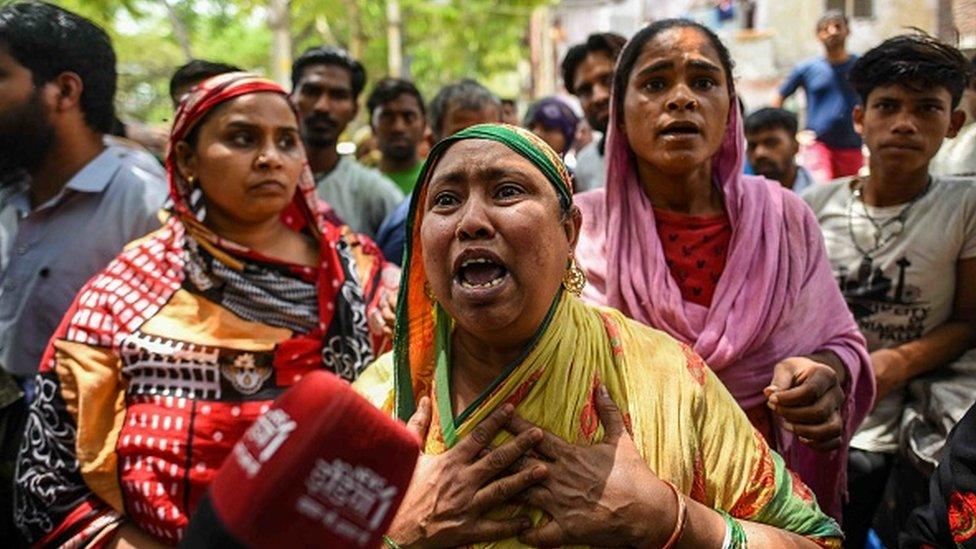
Residents lament the loss of their property and belongings
Gufran, 42, frantically searched for an old notebook in the pile of rubble outside his home in Jahangirpuri.
"It has records of the money I owed to people. With all goods of my shop being taken away, I don't even know where it is. If only I could have salvaged it," the scrap dealer said.
As his family joined him in the search, an excavator truck tore down the exterior of a neighbourhood mosque.
This is the same mosque near which clashes had broken out between two groups on Hanuman Jayanti - a day Hindus celebrate to mark the birth of their god, Hanuman.
More than a dozen Muslims, mostly fasting during the holy month of Ramadan, perched on the mosque's rooftop and watched the demolition in horror.
Clutching her niece's hand, Sabina Begum, who has lived behind the mosque for the last 32 years, sobbed silently.
"Our area will never be the same. It's all the work of outsiders but we will pay a heavy price for their misdeeds," she said.
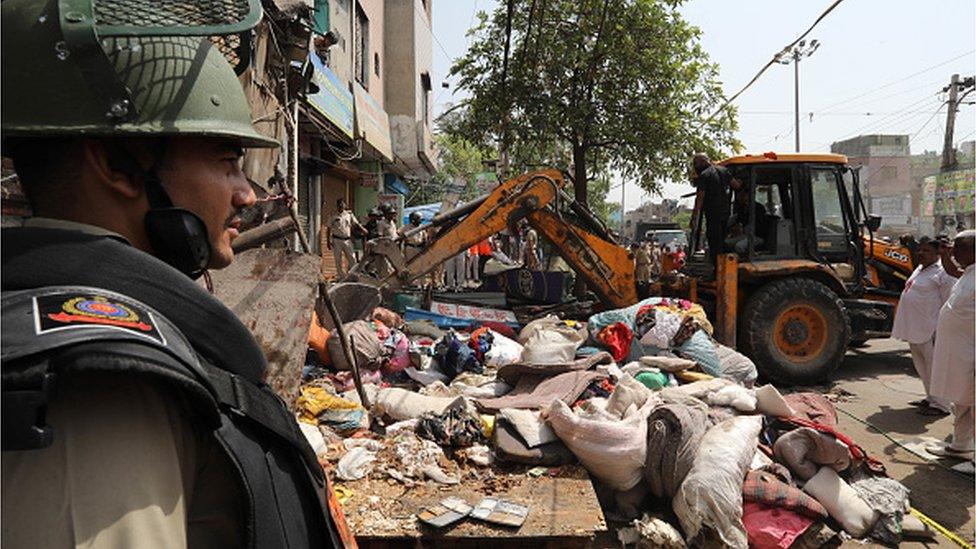
Hundreds of armed policemen in riot gear provided a security cordon during the drive
Civic officials were carrying details of alleged illegal structures built on public or government property and bringing them down one by one.
Ganesh Gupta, 54, pleaded before officials to give him some time but the excavator continued dismantling his fruit juice kiosk.
"This is brazen," he shouted at the top of his voice. "My father ran this shop and I also have legal papers. Why didn't they give us prior notice?" he asked.
The Delhi civic body laws provide for a five-day notice period to be given in person to anyone who encroaches on government property.
The Supreme Court has now ordered petitioners against the demolition to submit affidavits on whether they were served notices before the demolition took place.
The court will resume hearing the matter in two weeks.

You may also be interested in:
Uttar Pradesh: 'The police killed our son, but no-one believes us'

- Published15 April 2022
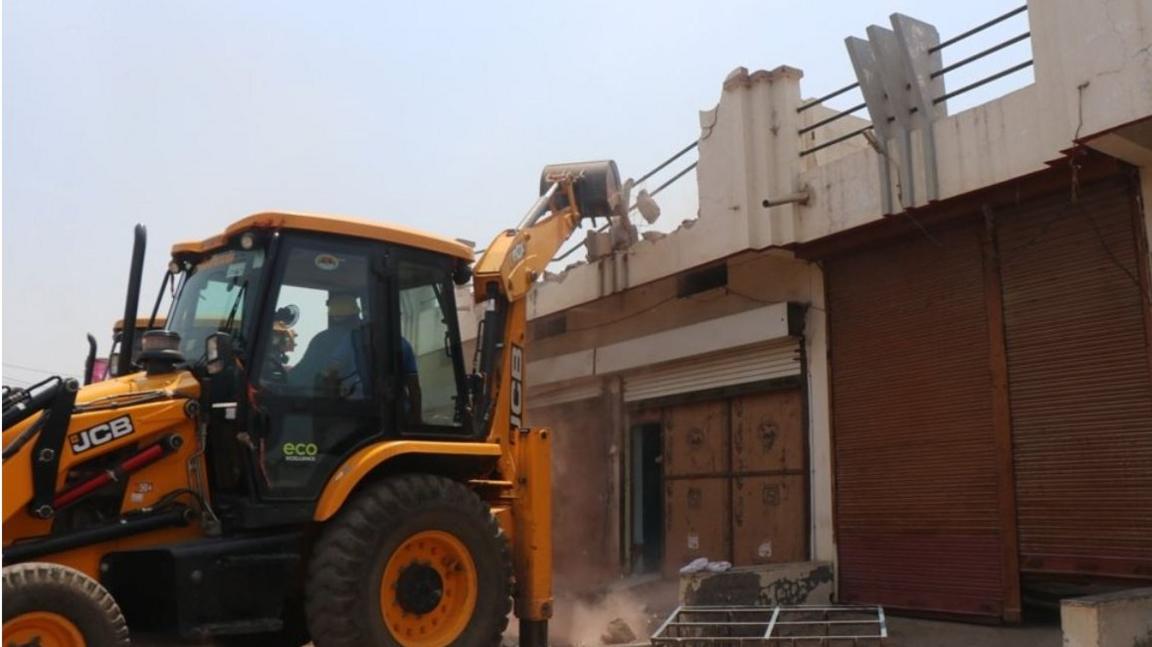
- Published14 April 2022
